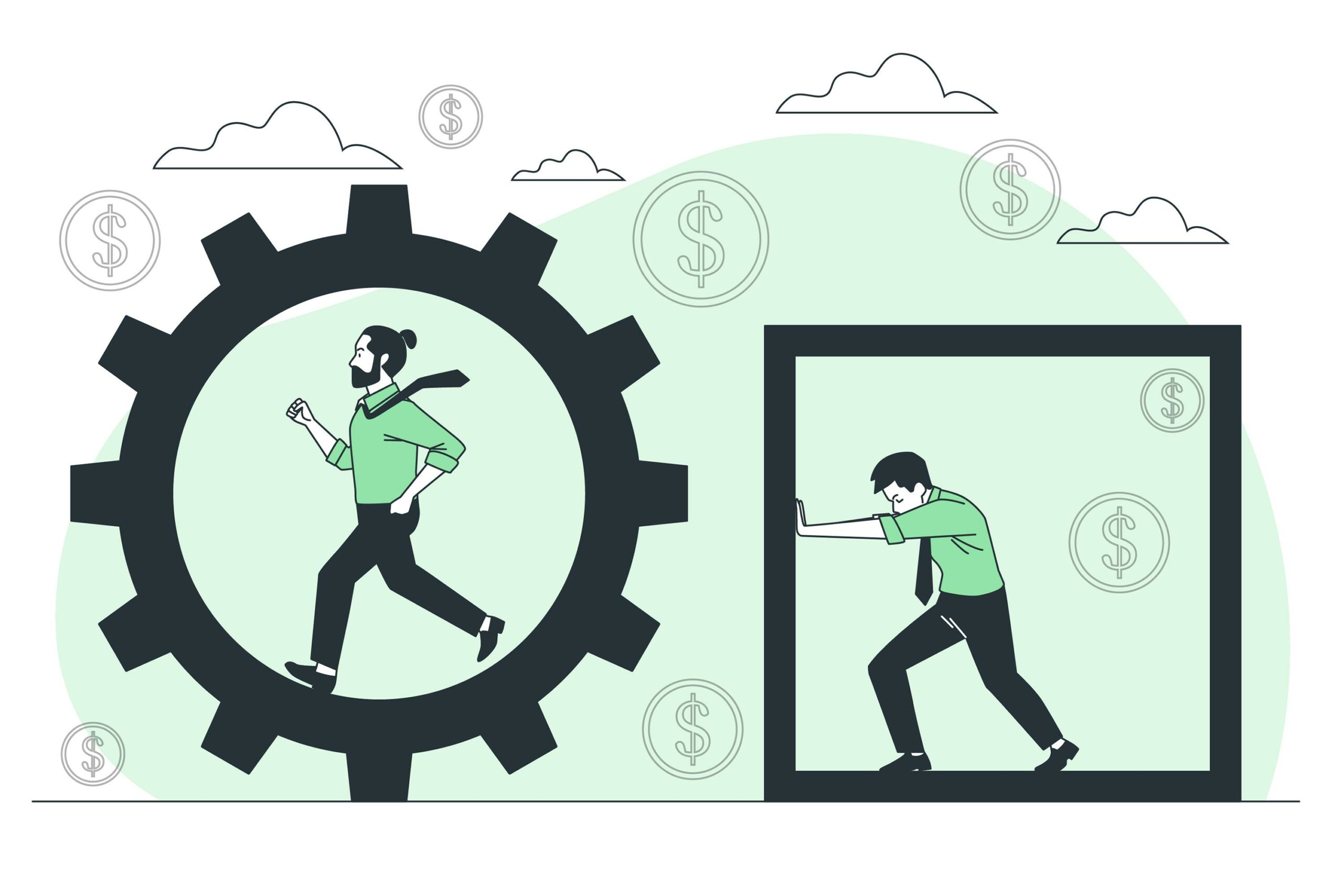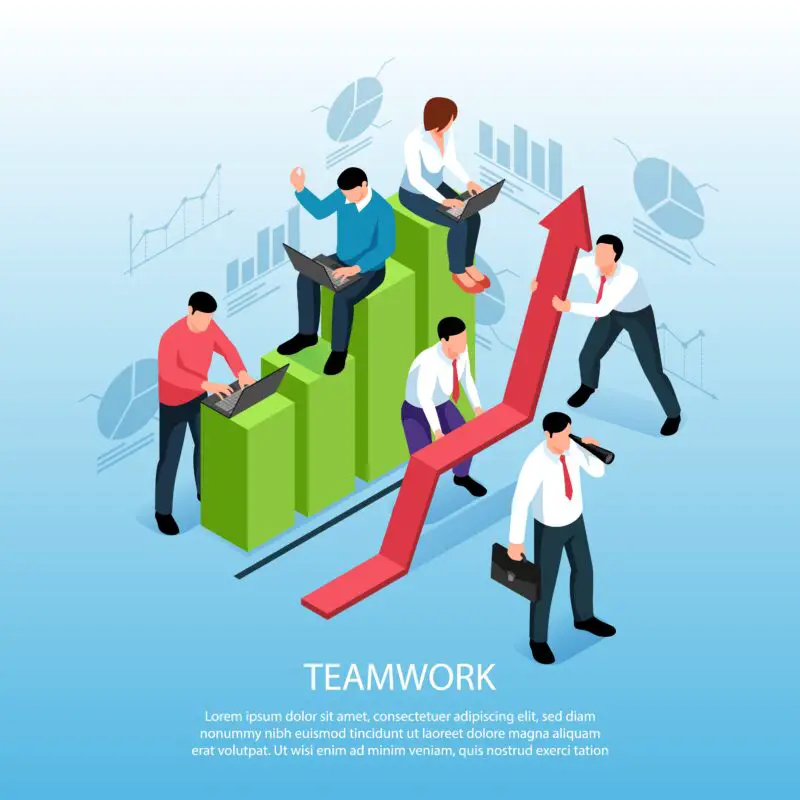Efficient relates to the ability to do something with minimal waste, while proficient refers to being skilled or competent in performing a task or activity. Efficiency focuses on resource optimization, while proficiency emphasizes skill and capability.
Definition of Efficiency

Efficiency refers to the ability to accomplish a task or achieve a goal with minimal wasted time, effort, or resources. It is a measure of how effectively someone or something can produce a desired result. In simple terms, efficiency is about doing things in the most optimal and streamlined manner possible.
When thinking about efficiency, it is important to consider how much time, energy, or resources are used to complete a task relative to the output or outcome. For example, a manufacturing process that can produce more products in less time and with fewer materials would be considered more efficient.
Efficiency can be measured using various metrics such as productivity, cost-effectiveness, or resource utilization. It is often associated with improving processes, eliminating waste, and maximizing output.
In the context of businesses, efficiency is crucial for competitiveness and profitability. It allows companies to deliver products or services faster, at a lower cost, and with higher customer satisfaction. Improving efficiency can lead to increased productivity, reduced expenses, and better overall performance.
To achieve efficiency, organizations often invest in automation, process optimization, and training. By analyzing workflows, identifying bottlenecks, and implementing solutions, they can streamline operations and improve their efficiency levels.
Efficiency is the ability to achieve desired results with minimal input. It is a fundamental concept in various domains, including business, manufacturing, and everyday life. Understanding and prioritizing efficiency can lead to improved performance and success in achieving goals.
Definition of Proficiency

Proficiency, as defined, is the level of expertise or skill in a particular field or activity. It is the ability to perform tasks with competence and excellence. When it comes to proficiency, individuals are capable of demonstrating a deep understanding, mastery, and a high level of competence in their chosen area of expertise. Proficiency encompasses not just knowledge but also the application of that knowledge to achieve desired outcomes.
In various professions such as medicine, engineering, and law, proficiency is essential. Individuals in these fields must possess a thorough understanding of their respective fields and possess the necessary skills to handle complex tasks. Proficiency is often obtained through years of education, training, and hands-on experience.
Having proficiency in a specific area enables individuals to confidently and effectively perform tasks, solve problems, and meet objectives. It should be noted that proficiency differs from efficiency, which focuses on accomplishing tasks with minimal wastage of resources or time. While efficiency is about doing things quickly, proficiency is about doing things exceptionally well.
To enhance your proficiency in any field, continuous learning, practice, and seeking opportunities to apply your knowledge are crucial. Cultivating a growth mindset and investing time in developing your skills will help you become more proficient in your chosen domain.
Efficiency vs Proficiency
Efficiency refers to the ability to accomplish a task or goal with minimum wasted effort or resources. It focuses on achieving a desired outcome in the most optimal and effective way. In other words, efficiency is about doing things right and maximizing productivity.
Proficiency relates to a high level of competence or skill in a particular area. It implies expertise, mastery, and a comprehensive understanding of a subject or field. Proficiency is about doing things well and demonstrating a high level of capability.
Understanding Efficiency
Understanding efficiency is crucial in various aspects of life and can have a significant impact on productivity and success. Here are some key points to consider:
- Definition of efficiency: Efficiency refers to the ability to accomplish a task with minimal waste, effort, or cost. It focuses on achieving results in the most streamlined and effective manner.
- Optimizing processes: To improve efficiency, it is essential to understand efficiency, identify and eliminate any unnecessary steps or activities that hinder progress. Streamlining workflows and utilizing resources effectively can greatly enhance efficiency.
- Measuring effectiveness: By understanding efficiency, efficiency can be measured by assessing the amount of output or results achieved in relation to the resources or time invested. Key performance indicators (KPIs) are often used to track and evaluate efficiency levels.
- Achieving time management: Efficient time management is crucial for maximizing productivity. It involves prioritizing tasks, setting deadlines, avoiding procrastination, and utilizing time-saving techniques.
- Continuous improvement: Enhancing efficiency is an ongoing process that requires constant evaluation and improvement. By understanding efficiency, embracing innovative technologies, seeking feedback, and implementing best practices can contribute to continuous efficiency gains.
To illustrate the importance of efficiency, let’s take a historical example. The construction of the Great Wall of China is a remarkable testament to the significance of understanding efficiency. By utilizing strategic planning, leveraging available resources, and employing thousands of workers, the wall was built with remarkable efficiency. The structure served multiple purposes, including defense, transportation, and boundary marking, showcasing a remarkable understanding of efficiency even centuries ago. This historical example highlights the enduring relevance and impact of understanding efficiency in various endeavors.
Understanding Proficiency
To gain a comprehensive grasp of proficiency, it is crucial to comprehend the concept and its significance in diverse contexts. Here are a few essential points to take into consideration:
- Expertise: Understanding proficiency entails acknowledging a high level of skill or competence in a specific area. It denotes that an individual or organization possesses the requisite knowledge, experience, and capabilities to carry out tasks effectively and efficiently.
- Specialization: Proficiency is often linked to specialization in a particular field or discipline. It indicates a profound comprehension and mastery of the subject matter, enabling individuals or organizations to excel in their respective domains.
- Performance: Proficiency is manifested in the ability to consistently achieve desired outcomes and meet established goals. It involves applying acquired knowledge and skills to produce work of high quality or deliver exceptional results.
- Continual Improvement: Proficiency is not a static state but rather an ongoing journey of growth and development. It necessitates continual learning, practice, and refinement of skills to remain up to date and enhance performance.
- Versatility: Proficiency is not confined to one area of expertise. It can be cultivated in various aspects of life, such as professional skills, personal hobbies, or interpersonal abilities.
Differences Between Efficiency and Proficiency
Get ready to unravel the distinctions between efficiency and proficiency. We’ll delve into the fascinating realm of these two concepts, exploring their focus, level of expertise, and application in various contexts. Discover how efficiency zeroes in on maximizing output with minimal resources, while proficiency centers around attaining a high level of skill and expertise. Buckle up as we navigate the intricate landscapes of these intriguing subjects and unravel the diverse implications they hold.
Focus and Goal
In the context of efficiency and proficiency, the focus and goal are distinct but interconnected. The primary focus of efficiency is to maximize productivity and optimize processes with the ultimate goal of achieving desired outcomes in the most streamlined and economical manner possible. On the other hand, proficiency focuses on enhancing one’s abilities and knowledge in a particular domain, aiming to cultivate mastery and expertise in order to deliver high-quality results.
While efficiency concentrates on the process and resource utilization, proficiency places emphasis on the individual’s capabilities and aptitude. Both efficiency and proficiency are important in different contexts. For tasks that require repetitive actions or large-scale operations, efficiency is crucial to ensure timely and cost-effective completion. In contrast, for complex tasks that demand expertise and specialization, proficiency is essential to deliver accurate and high-caliber outcomes.
Understanding the distinction between efficiency and proficiency helps individuals and organizations identify the appropriate approach for various situations. By aligning the focus and goal with the specific requirements, they can make informed decisions and prioritize either efficiency or proficiency accordingly.
Level of Expertise
| Level of Expertise | Efficiency | Proficiency |
| Definition | The ability to complete tasks quickly with minimal wasted effort | The ability to perform tasks skillfully and with expertise |
| Focus and Goal | Efficiency focuses on completing tasks in the most time-effective manner possible | Proficiency focuses on performing tasks with a high level of skill and expertise |
| Expertise Level | Efficiency can be achieved with lower levels of expertise, as long as the tasks are completed quickly | Proficiency requires a high level of expertise and skill to perform tasks with precision and excellence |
| Application and Context | Efficiency is important in situations where time is a critical factor and tasks need to be completed as quickly as possible | Proficiency is important in situations that require specialized knowledge and high-quality performance |
Application and Context
| Application | Context |
| Efficiency | The application of efficiency focuses on accomplishing tasks or goals in the most productive and time-effective manner. Efficiency is often measured by output per unit of input. |
| Proficiency | The context of proficiency lies in the level of expertise or skill in a particular area. Proficiency is about being competent and capable in performing tasks or duties. |
In the realm of business and productivity, understanding the application and context of efficiency versus proficiency is crucial. Efficiency revolves around accomplishing tasks or goals in the most productive and time-effective manner.
It emphasizes maximizing output while minimizing input. On the other hand, proficiency focuses on the level of expertise or skill in a specific area. It emphasizes being competent and capable in performing tasks or duties.
When it comes to application, efficiency is commonly used to streamline processes, eliminate waste, and increase productivity. It is particularly valuable in repetitive tasks or time-sensitive projects where time is of the essence.
Proficiency, on the other hand, is applied in situations that demand a high level of skill, expertise, or knowledge. It is often seen in specialized fields or professions where precision and competence are essential.
Understanding the context of efficiency and proficiency helps individuals and organizations determine when to prioritize one over the other. For tasks that require quick turnaround times or high productivity levels, efficiency should be prioritized. In situations that demand a high level of expertise or quality, proficiency takes precedence.
Examples to Illustrate the Differences
Become familiar with the distinctions between efficiency and proficiency through a set of compelling examples. We’ll explore real-life instances that highlight how efficiency manifests in various contexts, alongside cases that showcase the significance of proficiency.
Efficiency Examples
| Example 1: | A manufacturing company implements a new production process that exemplifies efficiency examples by reducing the time taken to produce a product by 30%, resulting in a significant increase in productivity. |
| Example 2: | A logistics company optimizes its delivery routes using advanced routing algorithms, demonstrating efficiency examples by reducing fuel consumption by 15% and improving delivery time by 20%. |
| Example 3: | An employee develops a streamlined workflow for processing invoices, showcasing efficiency examples by reducing the average processing time from 1 hour to 30 minutes, leading to increased efficiency in the finance department. |
| Example 4: | A customer service team implements a knowledge base system that allows customers to find answers to their questions independently, presenting efficiency examples by reducing the number of support calls by 40% and freeing up staff to focus on more complex issues. |
Efficiency examples can be found in various areas of work and life. They typically involve the implementation of processes, technologies, or strategies that result in time or resource savings, increased productivity, or improved performance.
Proficiency Examples
Proficiency Examples
| 1. Piano Playing |
| 2. Language Translation |
| 3. Programming |
| 4. Public Speaking |
| 5. Surgery |
In the context of proficiency, there are several proficiency examples that demonstrate a high level of expertise in specific areas. One such example is piano playing. A proficient pianist possesses not only technical skills but also the ability to convey emotions through the instrument.
Another example is language translation. Being proficient in multiple languages allows one to accurately and seamlessly translate written or spoken content between different languages, ensuring effective communication.
Programming is yet another field where proficiency is essential. Proficient programmers have in-depth knowledge of programming languages and frameworks, enabling them to develop complex software solutions efficiently.
Proficiency in public speaking is also crucial. Skilled public speakers can captivate an audience, convey their message clearly, and engage listeners through effective verbal and non-verbal communication techniques.
Surgery requires a high level of proficiency. Surgeons must have a deep understanding of the human anatomy, precise motor skills, and the ability to make critical decisions in high-pressure situations.
These examples highlight the importance of proficiency examples in various domains and emphasize the level of expertise and skill required to excel in these areas.
It’s interesting to note that throughout history, countless individuals have dedicated their time and effort to cultivate proficiency in different fields. Their contributions have significantly impacted society and shaped the world we live in today.
Importance of Efficiency and Proficiency
Efficiency and proficiency are two key factors that contribute to success in any endeavor. In this section, we’ll delve into the importance of these qualities and explore when to prioritize efficiency and when to prioritize proficiency. Discover the impact these factors have on achieving goals, maintaining productivity, and attaining excellence. So, whether you’re aiming for streamlined processes or mastering a skill, understanding when to focus on efficiency or proficiency can make all the difference in your journey to success.
When to Prioritize Efficiency
When considering how to prioritize efficiency, it is crucial to take into account various factors, such as time constraints, resource optimization, and task completion. The importance of efficiency becomes even more evident when there is a limited timeframe to finish a task or project. By placing a focus on efficiency, you can maximize productivity and successfully accomplish more within the given time frame. Giving priority to efficiency not only ensures that resources are utilized effectively, reducing waste and unnecessary expenses, but also allows for the streamlining of processes and the elimination of any obstacles that could impede progress.
Efficiency holds even greater significance in high-demand environments where quick turnaround times are essential. This is especially true in industries like manufacturing or customer service, where meeting deadlines and providing prompt service are critical. By identifying and implementing efficient practices, businesses can elevate their overall productivity levels and effectively meet customer expectations.
However, it is essential to bear in mind that efficiency should never come at the expense of quality. While speed may be important, maintaining a high standard of work is equally crucial. Striking the right balance between efficiency and quality is key to ensure that tasks are completed swiftly without compromising the desired outcomes.
When to Prioritize Proficiency
When considering when to prioritize proficiency, it is important to keep in mind a few factors. Proficiency refers to the level of skill, knowledge, and expertise in a particular area. Here are some instances where prioritizing proficiency would be beneficial:
1. Complex tasks: When dealing with complex tasks that require a high level of expertise, it is important to prioritize proficiency. For example, in fields such as medicine or engineering, where precision and accuracy are crucial, having proficient professionals is essential.
2. Specialized knowledge: When dealing with specialized knowledge, it is important to prioritize proficiency. For instance, if you need legal advice, it would be best to consult a proficient lawyer who specializes in the area of law you require assistance with.
3. Career advancement: Prioritizing proficiency becomes crucial when seeking career advancement. Employers often value employees who demonstrate proficiency in their roles, as it shows dedication and expertise in their field.
4. Quality outcomes: When the end result or outcome needs to be of high quality, it is important to prioritize proficiency. Proficient individuals are more likely to produce excellent results by utilizing their skills and expertise effectively.
5. Time-sensitive situations: In time-sensitive situations, prioritizing proficiency ensures faster and more efficient completion of tasks. Proficient individuals are often able to handle tasks with precision and accuracy, leading to quicker resolutions.
Prioritizing proficiency is necessary in situations that require specialized knowledge, complex tasks, career advancement, quality outcomes, and time-sensitive situations. By focusing on proficiency, individuals can achieve higher standards and improve overall performance. Remember to choose proficient individuals or prioritize developing proficiency in a specific area to ensure successful outcomes.
Frequently Asked Questions
What is the difference between efficient and proficient?
The terms “efficient” and “proficient” have different meanings when it comes to evaluating someone’s abilities. “Proficient” refers to having a high level of skill or expertise in a specific field, while “efficient” means accomplishing a task with minimal wasted effort or resources.
How does efficiency relate to accomplishing a task?
Efficiency is related to accomplishing a task skillfully within a specific timeframe and with the least amount of wasted effort or resources. It focuses on productivity and streamlining processes to achieve optimal results.
What does proficiency mean in project management?
In project management, proficiency refers to the skillful execution of a job through consistent hard work and the attainment of results that meet established standards. It implies a high degree of knowledge and expertise in the specific field.
Can efficiency be achieved without considering time constraints?
No, efficiency is concerned with completing a task skillfully within a specific timeframe. It takes into account the time constraints and focuses on accomplishing the task in the most effective way possible.
How can someone withdraw consent for data processing?
If someone wants to withdraw consent for data processing, they can find the link to do so in the privacy policy accessible from the home page. By following the provided link, users can change their settings or withdraw their consent.
Is there a difference between proficiency and efficiency in terms of work habits?
Yes, there is a significant difference between proficiency and efficiency when it comes to work habits. Proficiency is about consistent hard work and steady performance, while efficiency focuses on accomplishing tasks with minimal wasted effort or resources.
Image Credits
Featured Image By – macrovector on Freepik
Image 1 By – storyset on Freepik
Image 2 By – vectorjuice on Freepik








